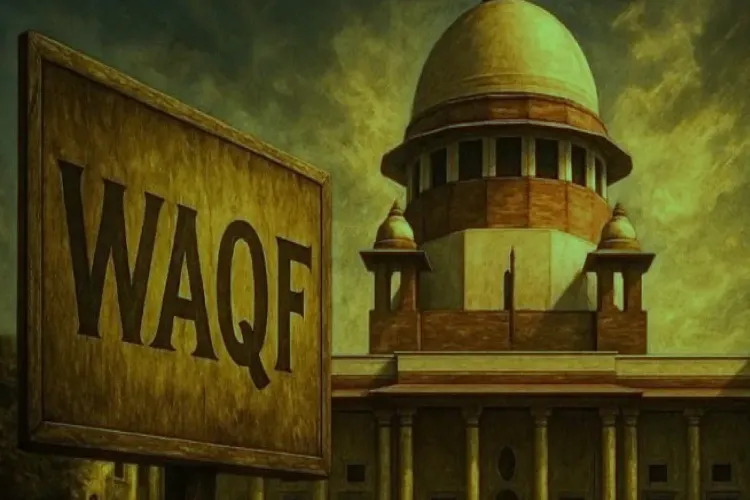
New Delhi
The Centre on Tuesday defended the Waqf (Amendment) Act, 2025 in the Supreme Court, asserting that the new law does not authorize the seizure of any waqf property. Solicitor General Tushar Mehta, representing the government, argued against an interim stay on the Act, saying it was passed by Parliament after thorough deliberation.
He clarified that under Section 3C of the Act, if a waqf property is found to encroach on government land, only the revenue records will be updated — not ownership rights. Ownership disputes, he said, will be settled by the Waqf Tribunal or high courts.
The government maintained that the amendments bring transparency to the registration and management of waqf properties and aim to curb fraudulent claims.
However, petitioners have challenged several provisions, particularly Section 3C, which they argue allows government officers to alter waqf property status without due legal process — violating religious freedoms guaranteed under the Constitution.
Chief Justice B.R. Gavai and Justice Augustine George Masih directed the Centre to file a detailed affidavit and scheduled the next hearing for June 5, 2025.
During the hearing, the court also raised concerns about including non-Muslim members in Waqf Boards and asked if the same principle would apply to Hindu religious trusts. Petitioners insist that only Muslims should serve on these boards, barring ex-officio members.
Earlier, on April 17, the Centre assured the court that it would not alter the status of “waqf by user” properties or make new appointments to Waqf Boards or the Central Waqf Council until a final verdict is delivered. The court had warned that identifying historic waqf sites like mosques and graveyards without proper documentation could lead to serious consequences.
On April 25, the Ministry of Minority Affairs submitted a 1,332-page affidavit defending the Act and opposing any blanket stay on a law passed by Parliament. The Act was cleared by both Houses — 288–232 in the Lok Sabha and 128–95 in the Rajya Sabha — and signed into law by President Droupadi Murmu last month.
The Centre also requested that the court limit its hearing to three key issues, including the power to revoke waqf declarations and the role of government officers in identifying waqf land. However, this was opposed by senior advocates Kapil Sibal and Abhishek Manu Singhvi, who argued that the entire law must be reviewed as a whole.
READ MORE: Banu Mushtaq's Heart Lamp wins Booker for portraying lives of Muslim women
The constitutional validity of the Waqf (Amendment) Act, 2025 now hangs in balance, with the Supreme Court’s final decision likely to set a precedent on the intersection of religious freedom, state powers, and property rights.
